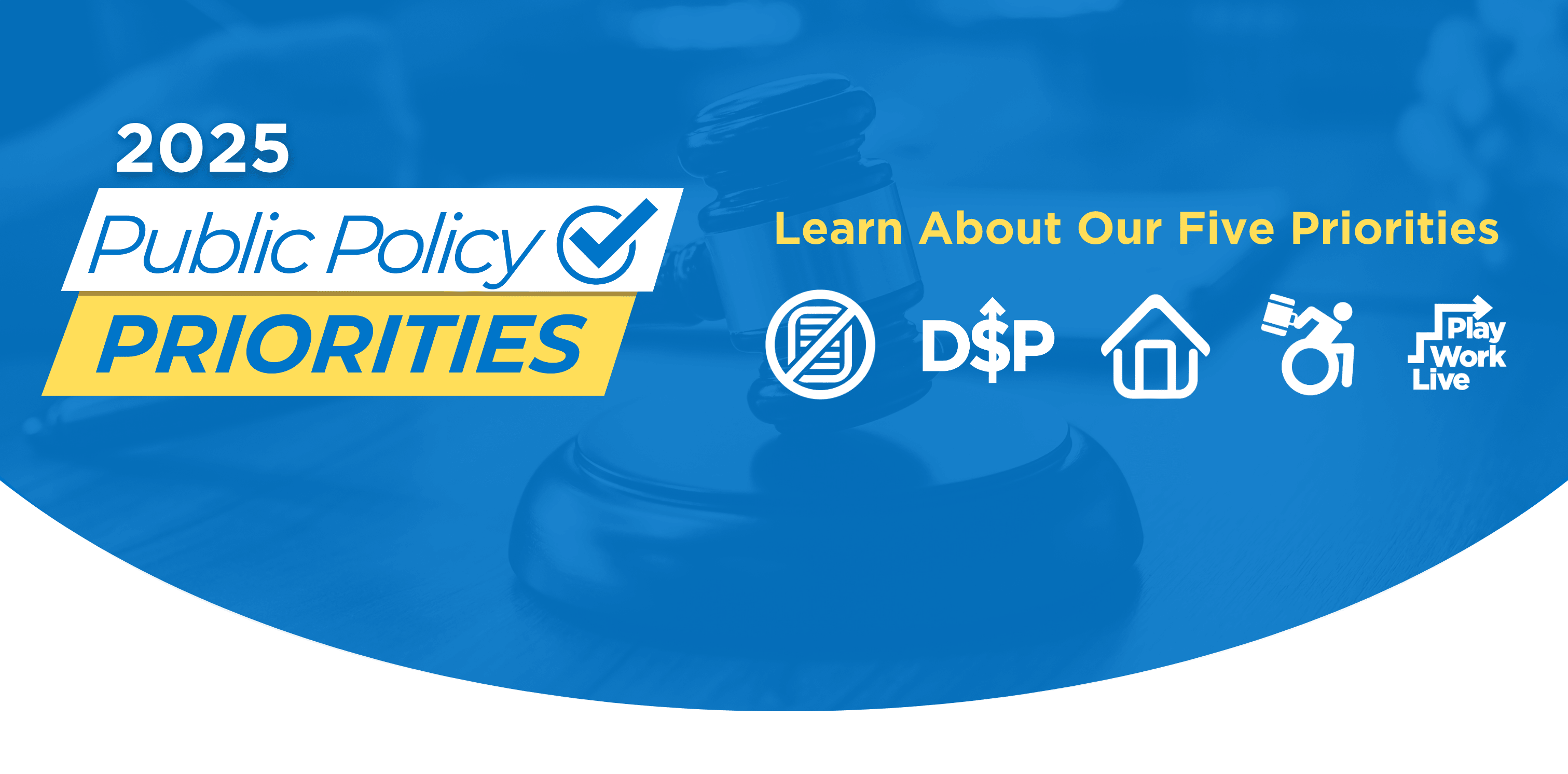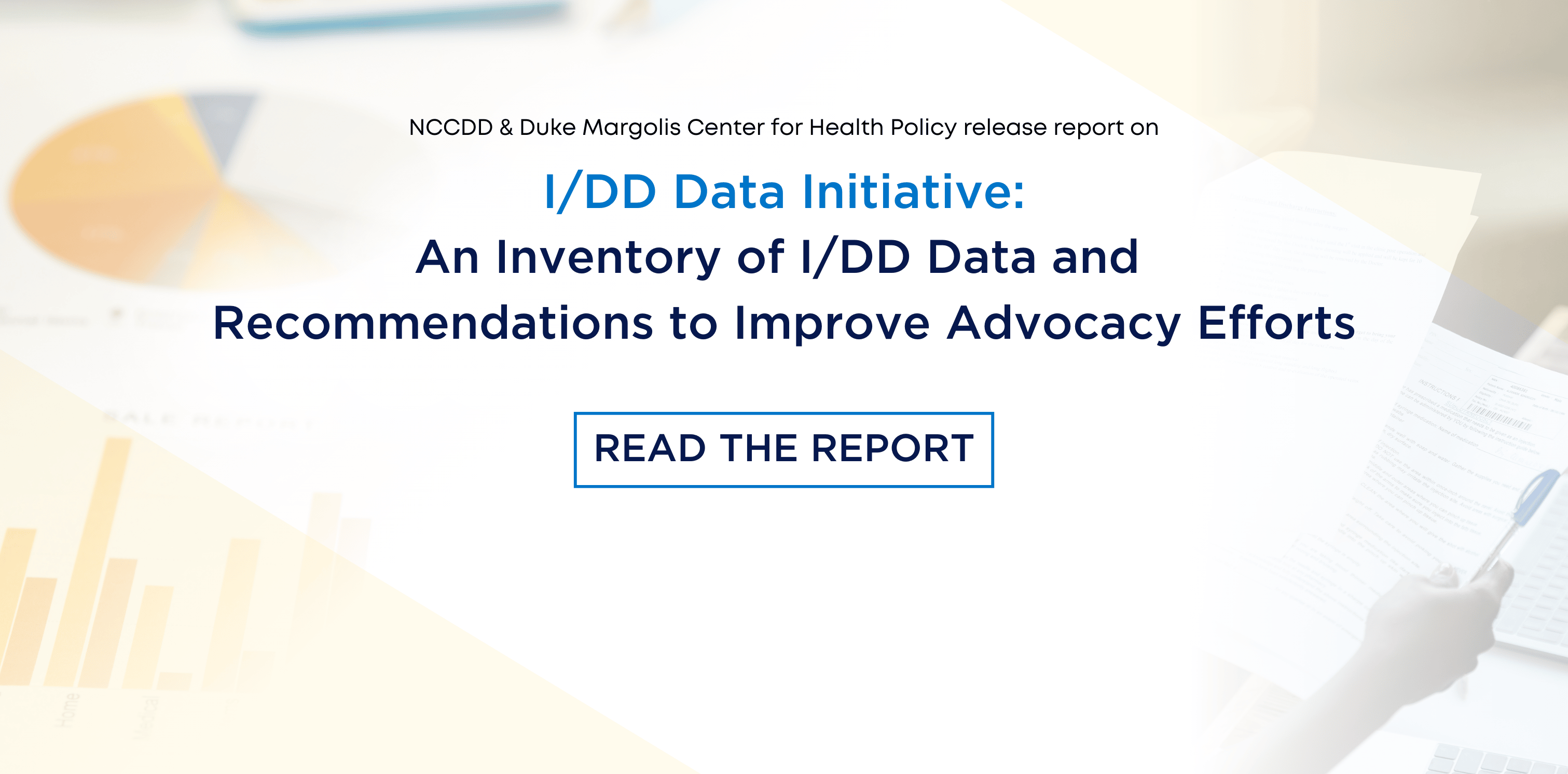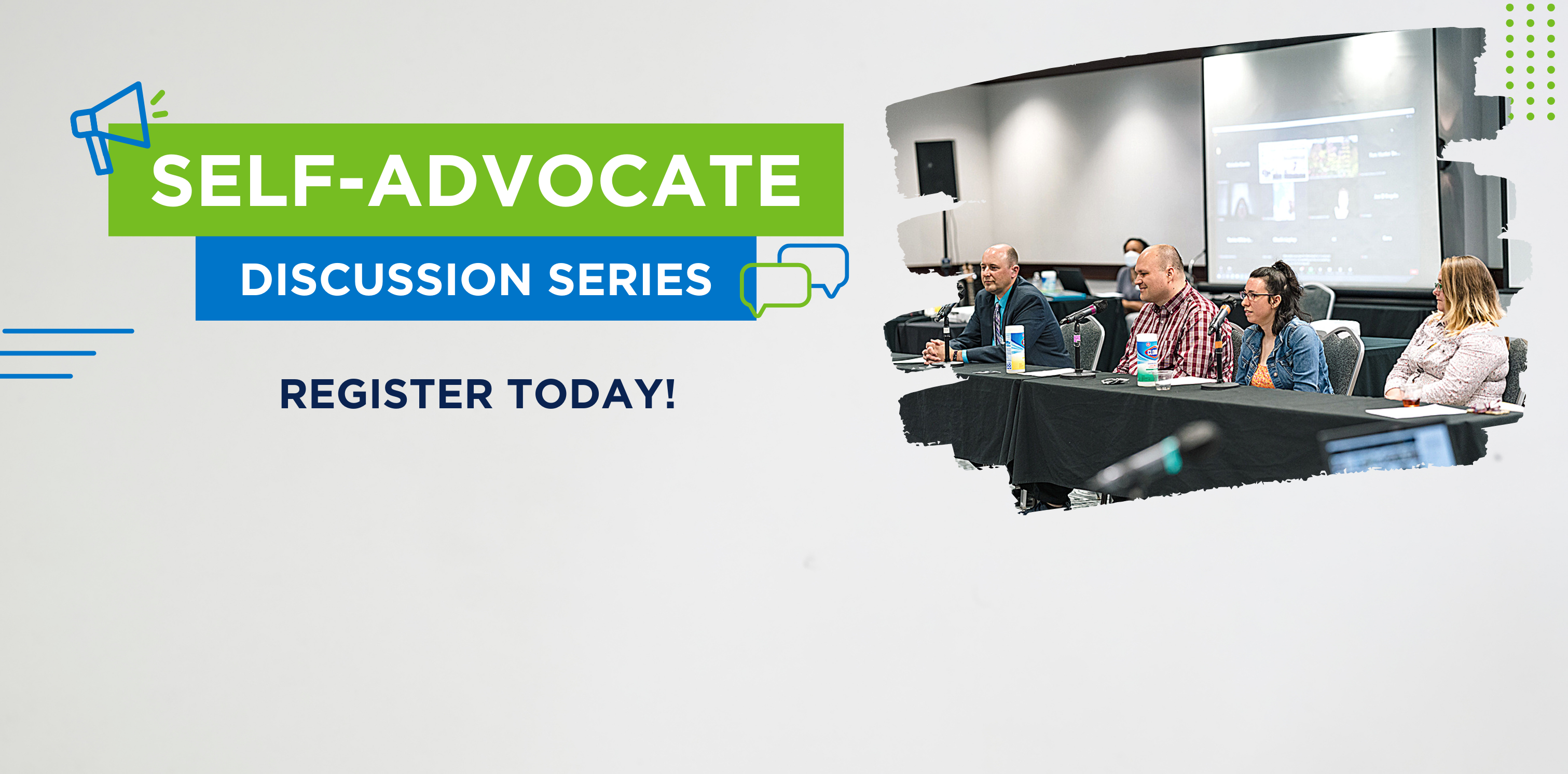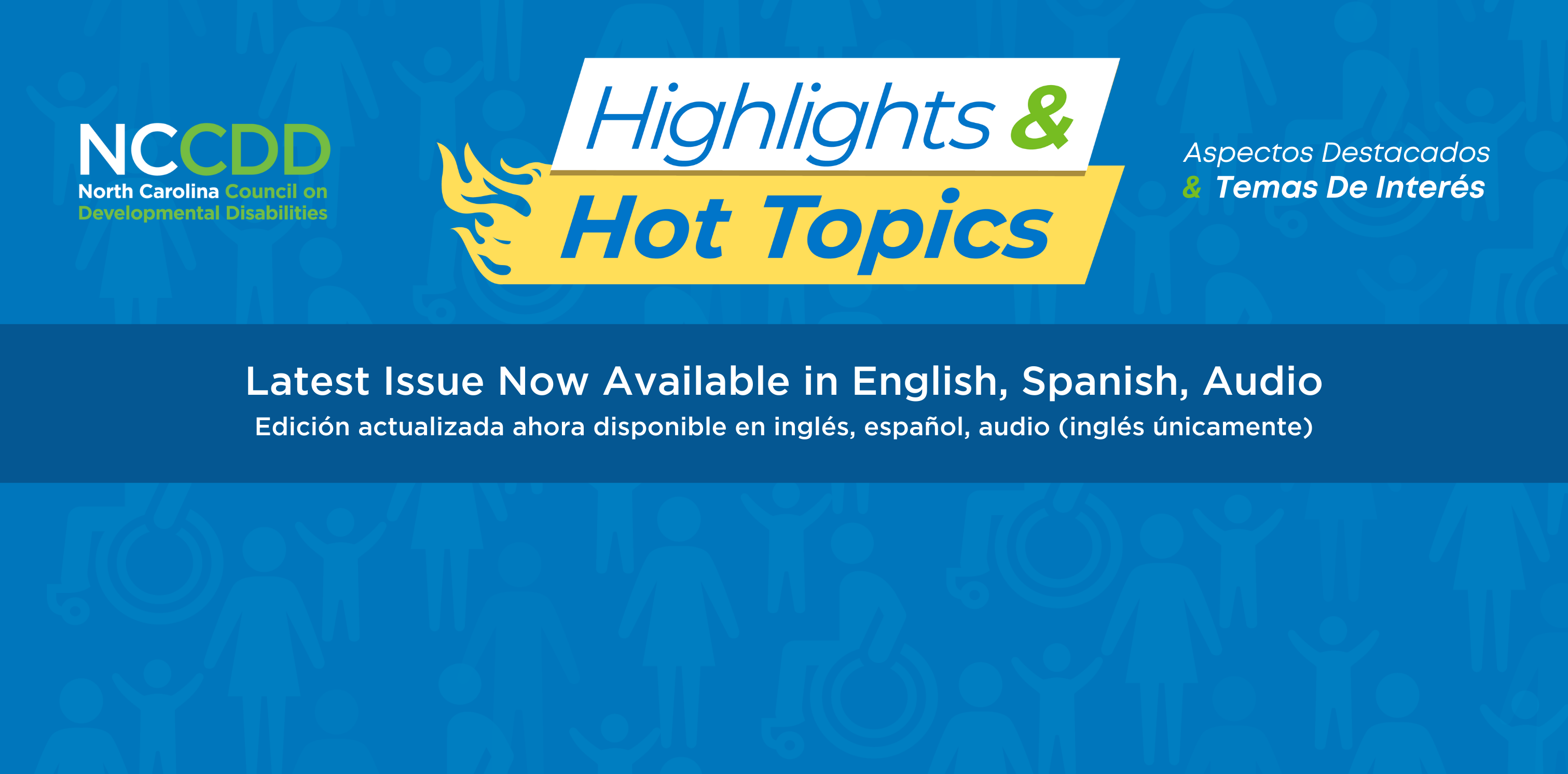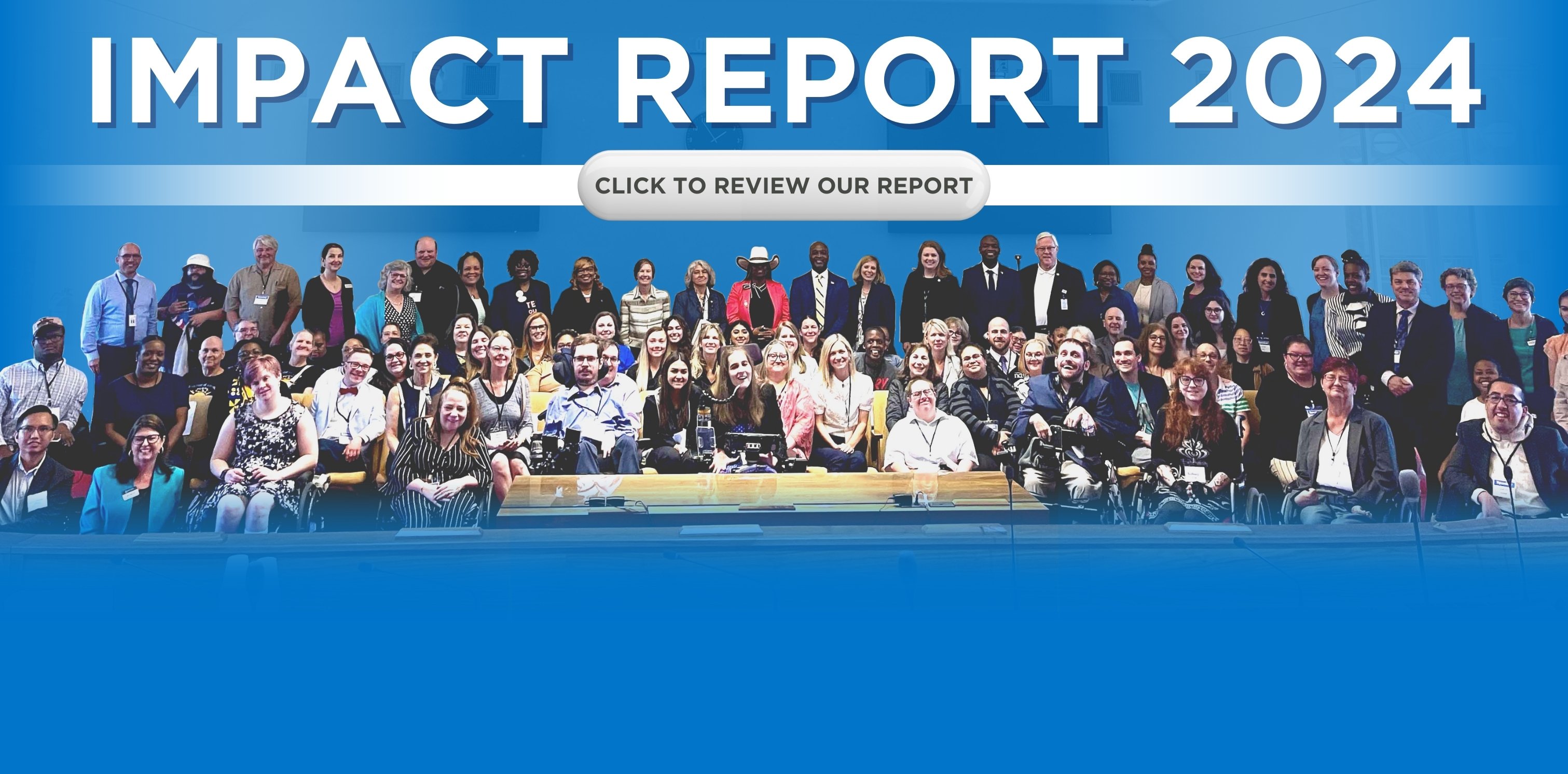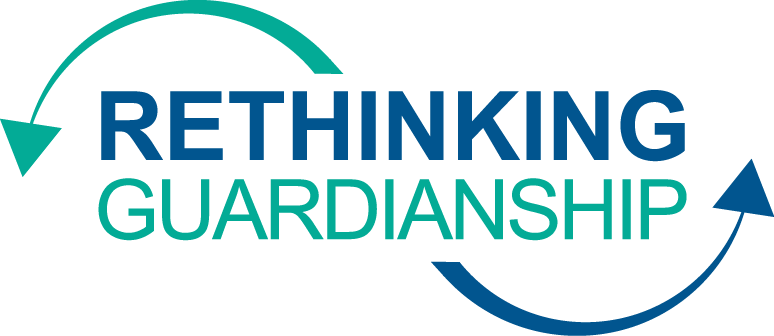 NCCDD will fund training, consultation and technical assistance to support the development of policies and practices, relative to guardianship and alternatives to guardianship, that advance integration, productivity, independence, integration, inclusion and self-determination for people with intellectual and other developmental disabilities (I/DD).
NCCDD will fund training, consultation and technical assistance to support the development of policies and practices, relative to guardianship and alternatives to guardianship, that advance integration, productivity, independence, integration, inclusion and self-determination for people with intellectual and other developmental disabilities (I/DD).
Why is NCCDD funding this initiative?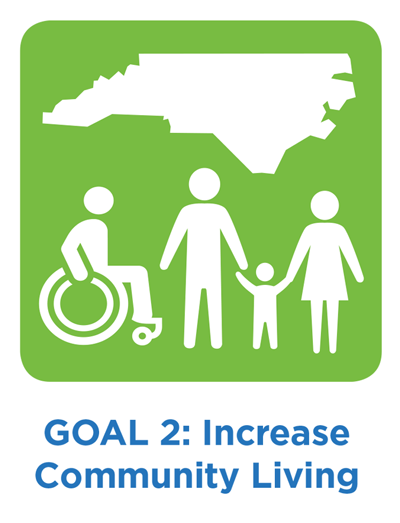
- Guardianship removes an adult's rights to manage his or her life decisions and places those decision-making responsibilities with a court-appointed guardian.
- Out of more than 5,000 adults in North Carolina who are served by a public guardian, nearly 3,000 (56%) are adults ages 18-59 years old, the majority of whom (85%) have an intellectual or other developmental disability (I/DD) and/or mental illness.
- Existing guardianship laws, policies and procedures do not receive uniform interpretation and implementation across the State.
- This initiative supports NCCDD's Goal 2 of the current Five Year Plan: Increase community living for individuals with I/DD.
What are the major goals and objectives?
- Further the work and extend the reach of the Rethinking Guardianship: Building a Case for Less Restrictive Alternatives initiative so that all stakeholders in the guardianship system are educated about guardianship, less restrictive alternatives to guardianship, best practices, and current and emerging statutory language.
- Encourage more guardians to support individuals living in long-term residential facilities to transition into a less restrictive setting with less restrictive decision-making constraints.
- Achieve successful legislative reform and help individuals understand the details of the legislative bill to engage in advocacy and self-advocacy and to address guardianship practice changes and implications.
What has taken place since the start of the program? (Activities)
- Promote the ongoing work and sustainability of a steering group and the statewide workgroup.
- Convene 2019 listening sessions with guardians specifically focused on individuals living in long-term residential facilities to understand the guardians’ practices and how they make decisions for and with individuals in a guardianship arrangement and to educate them about guardianship resources, guardianship laws, and proposed statutory changes.
- Fold the lessons learned from the Rethinking Guardianship: Building a Case for Less Restrictive Alternatives initiative into a two-part Summit for these guardians and all other stakeholders to bring more attention to guardianship and the rights of people with disabilities to self-direct their lives.
- Provide education around proposed legislative reforms in the 2019 long session, including plain-language materials to help people understand the bill and the need for reforming guardianship practices in North Carolina.
What has been achieved to date?
- Established and convened the steering and statewide workgroups.
- Initiated working relationships with the Administrative Office of the Courts Government Affairs staff and the Executive Committee of the Conference of Clerks to set plans in motion for the Summit and the Legislative, Policy and Practice Task Force.
- Invited new stakeholders to the workgroup who are active within the guardianship system as advocates and family members.
- Shared Rethinking Guardianship resources with local media, including ABC11 in Raleigh, which highlighted a family’s story and made reference to the importance of the Rethinking Guardianship initiative.
- Continued to update and publicize the Rethinking Guardianship website: http://rethinkingguardianshipnc.org
- Finalized and publicized “Rethinking Guardianship: An Introduction to Options” brochure in both English and Spanish.
- Supported eight clerks to attend the National Guardianship Association Conference in Palm Springs, California in October 2018.
- Hosted the second part of the Summit attended by nearly 280 people in Raleigh on February 25, 2019. Keynote speaker Erica Wood of the American Bar Association spoke about WINGS – Working Interdisciplinary Network of Guardianship Stakeholders – activities around the country.
- Secured Erica Wood of the American Bar Association to speak about WINGS -- Working Interdisciplinary Network of Guardianship Stakeholders -- activities around the country at the second part of the Summit in Raleigh on February 25, 2019.
- Drafted proposed revisions to North Carolina General Statute 35A that formed the basis of two bills (HB 619, which passed in May, and SB 337) to establish a workgroup to study and recommend changes to 35A.
- Wrote and submitted an eight-page section of the NCCDD-sponsored Supported Living: Making the Difference initiative Guidebook titled “How Do We Support People in Making Decisions?”
- Completed surveys for Department of Social Services (DSS) attorneys and both public and private guardians of individuals living in institutions. The results showed that a perceived lack of community services and concerns about safety make up the biggest barriers to guardians supporting transitions to the community.
- The American Bar Association’s BIFOCAL May-June 2019 newsletter published an article on this initiative.
- Hosted listening sessions for guardianship professionals and for family/private guardians in Durham and Wilmington in September 2019 to better understand the barriers to supporting transitions to community living.
- Facilitated training programs and provided Rethinking Guardianship resources to more than 30 Cardinal Innovations Care Coordinators.
- Assembled and convened NCGS 35A writing team to draft and complete proposed revisions by the spring of 2020.
- Featured Indiana Supported Decision-Making process and Oregon WINGS presentations during August and November 2019 statewide workgroup meetings.
What long-term changes are expected as a result of this initiative?
- Continue to build a sustainable infrastructure to effect long-term changes in North Carolina’s guardianship system that respects the rights of individuals in a guardianship arrangement and those facing guardianship.
- Secure North Carolina General Assembly amendments to policies (NCGS 35A) that promote less restrictive guardianship alternatives as appropriate.
- Provide educational resources to make individuals and families aware of the guardianship process and less restrictive alternatives.
- More individuals with I/DD, mental illness and other disabilities will have greater capacity for supported decision-making and more control over their individual lives.
How can I get involved?
Contact Linda Kendall Fields at [email protected]
Who is the contractor?
![]()
DHHS Division of Aging and Adult Services
Who can I contact for questions?
Grant Administrator: Kate Walton, [email protected]
NCCDD: Philip Woodward, Systems Change Manager, [email protected]
Additional Resources
Click here to download a pdf of the new initiative: Rethinking Guardianship: A Person-Centered Approach
Click here to read the Final Report for our Rethinking Guardianship: A Person-Centered Approach from 2019
Resurces below are from the original initiative, which ran from 2015 to 2017:
Rethinking Guardianship: Building a Case for Less Restrictive Alternatives initiative
Click here to download a pdf of the original initiative.
Click here to read the Third Year and Final Report from 2017
Click here to read the Second Year Report from 2016
Click here to read the First Year Report from 2015
Rethinking Guardianship: Building a Case for Less Restrictive Alternatives initiative
NCCDD will fund training, consultation and technical assistance to support the development of policies and practices, relative to guardianship and alternatives to guardianship, that advance integration, productivity, independence, integration, inclusion and self-determination for people with intellectual and other developmental disabilities (I/DD).
Why is NCCDD funding this initiative?
- Guardianship is the most restrictive option of legal substitute decision-making, and continues to increase in North Carolina, specifically for younger adults with disabilities.
- Administrative Office of the Courts reveals of 4,860 incompetency petitions filed, 3,747 resulted in guardianship.
- Recent public guardianship information collected by the Division of Aging and Adult Services (DAAS) reveals that no longer are the frail elderly the majority of people under guardianship in NC.
- Out of more than 5,000 adults served by a public guardian in NC, nearly 3,000 (56%) are younger adults age 18-59 years old, the majority of whom (86%) have a primary diagnosis of intellectual and other developmental disabilities (I/DD) or mental illness.
- Of older adults 60-84 years, who comprise 37% of adults served by public guardians, almost half (48%) have a primary diagnosis of I/DD or mental illness.
- Existing guardianship laws, policies and procedures do not receive uniform interpretation and implementation across the State.
- Recent efforts to address guardianship in NC have focused only on public guardianship issues.
- This initiative supports NCCDD's Goal 2 of the new Five Year Plan: Increase community living for individuals with I/DD.
What are the major goals and objectives?
- Build on 2013 public guardianship efforts and expand discussion to full range of guardianship and its alternatives.
- Use data and stories to build a baseline for shared measurement toward a goal of system improvements and less restrictive alternatives.
- Compile best practices information from experts in the guardianship field and study the actions of states that have successfully implemented less restrictive models of guardianship, as well as models of self-determination and supported decision-making.
- Review existing state data on guardianship determination, tracking individuals, and the processes for ongoing review and re-evaluation.
- Support a more central leadership role by the NC Administrative Office of the Courts (AOC).
What has taken place since the start of the program? (Activities)
- Launch new curriculum and create training opportunities for guardians.
- Evaluate pilot initiative in Catawba County as a step towards a replicable model.
- Interface with child welfare system and the educational system to promote alternatives to guardianship.
- Continue workgroup as ongoing entity that uses the information it gathers from experts, other states and collected data to make recommendations for NC guardianship after this initiative ends.
What has been achieved to date?
- Catawba County pilot demonstrates need for greater data collection to inform changes to be made in guardianship.
- Passage of NC Statue 35B – Uniform Adult Guardianship and Protective Proceedings Jurisdiction Act (UAGPPJA).
- North Carolina now recognized as a WINGS state - Working Interdisciplinary Network of Guardianship Stakeholders – as a result of the work of this initiative.
- Launched a website with resources which can be utilized by families and processionals. See http://ssw.unc.edu/rethinking/home
- Built a knowledge base of best practices by educating and informing the workgroup on alternatives to guardianship such as advance directives; supported decision-making and self-determination and less restrictive models of guardianship adopted by other states.
- Working toward comprehensive reform on NC General Statute 35A during the 2019 legislative session.
Introduced Restoration to Competency forms through the Administrative Office of the Courts in May 2017, which may be used with restoration of competency proceedings under NC General Statute 35A-1130. - Developed the Understanding Guardianship video.
- Completed the brochure Rethinking Guardianship: An Introduction to Options.
What long-term changes are expected as a result of this initiative?
- Build a sustainable infrastructure to effect long-term changes in NC’s guardianship system that respects the rights of individuals in guardianship and those facing guardianship.
- Establish a sustainable plan of court and community support that continually assesses North Carolina’s guardianship system to determine when formal or informal adaptations are needed.
- Recommend amendments to North Carolina General Assembly policies (NCGA 35A) that promote less restrictive guardianship alternatives as appropriate.
- Provide educational resources to make individuals and families aware of the guardianship process and less restrictive alternatives.
Recent Posts
Message from the Executive Director Public Policy Update (as of…
